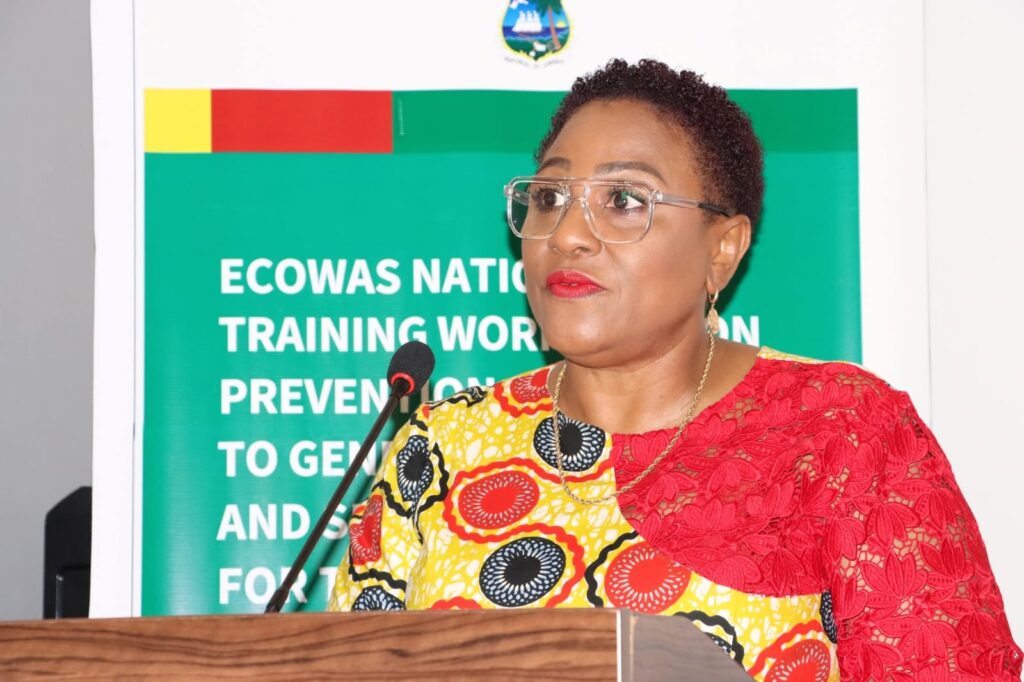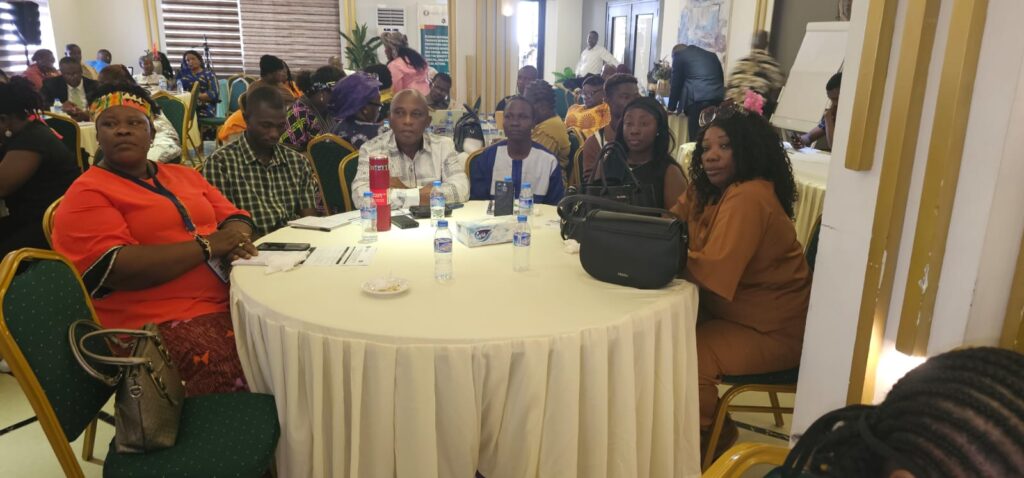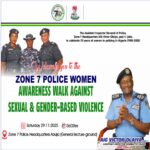ECOWAS Trains Frontline Institutions in Liberia to Enforce Zero Tolerance for Gender-Based Violence.
By Raymond Enoch
The Economic Community of West African States (ECOWAS) has stepped up its fight against gender-based violence (GBV) and sexual harassment in Liberia with an intensive national capacity-building workshop for frontline institutions in Monrovia.

From November 18th to 21st, 2025, ECOWAS, through its Gender Development Center, convened judicial, healthcare, and social workers at the Boulevard Palace Hotel in Monrovia for a four-day training focused on preventing and responding to GBV and sexual harassment. The programme was organised in close collaboration with Liberia’s Ministry of Gender, Children, and Social Welfare as part of the implementation of regional instruments and protocols on the protection of women, girls, and other vulnerable groups.
Declaring the workshop open, the Deputy Minister of Gender, Laura Golakeh, underscored the urgency of translating Liberia’s policy commitments on GBV into concrete and coordinated action at community level. She commended ECOWAS for its continued support to member states, stressing that the prevalence of sexual and gender-based violence remains a grave concern that requires “strong institutions, trained professionals, and a united national response.”

The workshop brought together representatives from key government ministries and agencies, including justice and health institutions, alongside civil society organisations, community-based structures, and professional associations. Over the four days, participants were exposed to a suite of technical tools and procedures designed to strengthen how GBV cases are reported, managed, and resolved within Liberia’s justice and social protection systems.
Experts from the ECOWAS Gender Development Center and national facilitators led sessions on GBV case management tools, including survivor-centred approaches to intake, referral, and follow-up. Participants also examined standard procedures for responding to sexual harassment in workplaces, schools, and public institutions, with a focus on ensuring effective complaints mechanisms, timely investigations, and appropriate sanctions.
A major component of the training centred on safe, ethical, and coordinated mechanisms for collecting, managing, and protecting survivor data. Emphasis was placed on confidentiality, informed consent, and inter-agency information sharing to avoid retraumatization and ensure that survivors receive comprehensive medical, psychosocial, and legal support.
By the end of the workshop, stakeholders had jointly developed a national roadmap to guide Liberia’s next steps in domestication and implementation of ECOWAS regional frameworks on GBV and sexual harassment. The roadmap identifies priority actions such as strengthening coordination between justice, health, and social services; improving survivor referral pathways; reinforcing community awareness; and institutionalising continuous training for frontline workers.
Participants also adopted a final communiqué calling for sustained political will, increased resource allocation, and stronger community mobilisation to uphold a culture of zero tolerance for GBV and sexual harassment across Liberia. The communiqué urges all actors—from state institutions to community leaders and the media—to play their part in preventing violence, protecting survivors, and holding perpetrators accountable.
With this targeted training, ECOWAS and its Liberian partners have signalled a renewed commitment to making regional standards on gender equality and human rights a reality in homes, workplaces, schools, and communities throughout the country.










